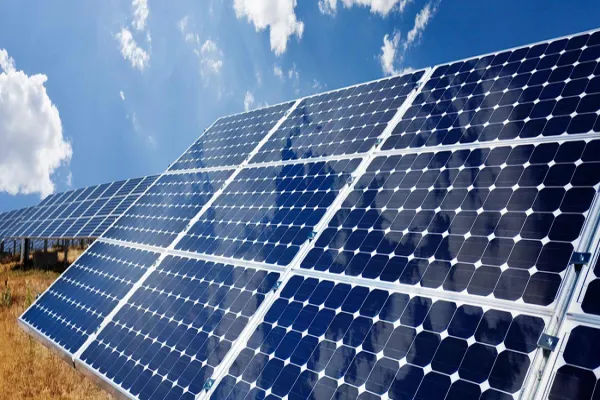i ECONOMY
Responding to the escalating climate-induced losses, Pakistan aims to halve its carbon emissions by 2030, contingent on 35% external funding. This commitment, tied to its $31.8B in exports and $80B in imports in 2022, affords Pakistan a chance to harmonize its trade strategies with emission reduction goals, fostering climate progress, says a report by the Sustainable Development Policy Institute (SDPI). The report further highlights that Pakistan's susceptibility to climate change impacts is accentuated by its geographic position, where the convergence of two key weather systems results in climate-driven turbulence. This was starkly evident in the devastating monsoons of 2022, incurring an estimated loss of $30 billion and displacing millions of people. The intensity of this event, magnified by global warming, signals an escalating risk for Pakistan unless substantial mitigation and adaptation endeavours are initiated. To address these challenges, the policymakers must respond swiftly and cohesively, engaging all stakeholders. Vital sectors, such as cement, textiles, and energy, could contribute to mitigation.
To finance the transition to green energy, a preliminary assessment has pegged the cost at $101 billion by 2030, with an additional $65 billion by 2040. Further, harnessing the potential of trade policies is pivotal. The proposed measures encompass: Access to Climate Finance: Pakistan must integrate climate finance efforts across ministries and establish a sustainable/green finance pipeline. Carbon taxes on environmentally unfriendly imports can generate revenue. A tracking mechanism for climate finance and a climate framework to identify credit hotspots should be instituted. The United Nations could develop a formula linking climate-induced damages and total emissions to enhance access to climate financing. Inclusion in international agreements: Joining agreements like the “Information Technology Agreement-I,” “Information Technology Agreement-II,” and “Environmental Goods Agreement” will align Pakistan's trade policies with international standards.
These agreements address the removal of tariffs on environmentally beneficial goods and services. This step would involve classifying harmful goods and services, disclosing emissions, and eliminating tariffs on beneficial environmental commodities. Cross-border emission mitigation: Pakistan should advance green technology adoption and nurture indigenous manufacturing. While transitioning from conventional to non-conventional energy is crucial, the nation should decrease its dependence on solar PV imports. Local-level policy formation: Empowering provincial and local governments is vital for promoting sustainable production and consumption. Integrating climate and trade policies across sectors is essential. Federal support should facilitate timely implementation of climate policies launched by the provinces. Specialized carbon market.
A comprehensive policy framework for a specialized carbon market is required to define carbon emission, measurement, reporting, and verification standards. Sectors like power generation, transportation, and manufacturing, which heavily contribute to emissions, must be identified. Implementing a carbon offset program and allowing emitters to invest in emissions reduction abroad are also crucial. In conclusion, Pakistan's commitment to curbing carbon emissions is imperative given its vulnerability to climate-related events. By channelling efforts through trade policies, the nation can effectively align economic activities with climate objectives, fostering resilience and sustainable growth.
Credit: Independent News Pakistan (INP)









